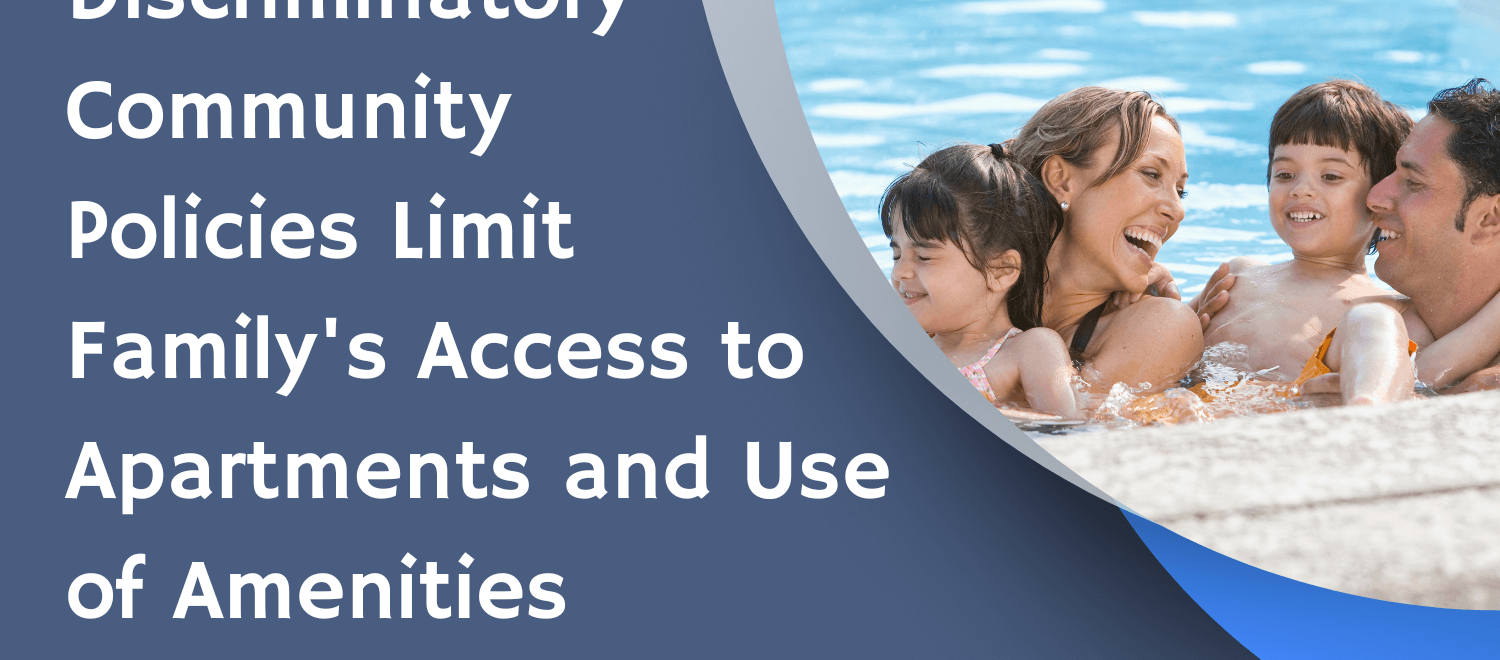Overview:
On October 6, 2022, the United States filed a complaint and a proposed consent order in United States v. Concord Court at Creative Village Partners, LTD, et al. (M.D. Fla.). The complaint alleges that the defendants, Concord Court at Creative Village Partners LTD., Concord Management LTD., related entities, and a property manager, discriminated against families with children in violation of the Fair Housing Act by refusing to issue building access devices to minor residents, prohibiting children from common areas and amenities unless supervised by adults, and misrepresenting the availability of units to families with children at an apartment complex in Orlando, Florida. The proposed consent order, which still must be approved by the court, requires the defendants to pay $260,000 to residents who were harmed by their practices and a civil penalty to the United States. The settlement also requires the defendants to implement nondiscrimination policies and provide fair housing training to employees with management or leasing responsibilities at all the properties they own or operate in Florida. The case was referred to the Division after the U.S. Department of Housing and Urban Development (HUD) received several complaints, conducted an investigation, and issued multiple charges of discrimination.
Press Release (10/6/22)
Case Open Date: Thursday, October 6, 2022
Case Name: United States v. Concord Court at Creative Village Partners, LTD, et al. (M.D. Fla.)
Tags: Village Partners; Amelia Court; SAS Concord; DBA Concord Rents; Concord Management; Dawn Lawson
Industry Code: None
Component: Civil Rights Division
Civil Rights – Housing and Civil Enforcement Section
Case Documents: Complaint – United States v. Concord Court at Creative Village Partners (M.D. Fla.)
Comments:
The alleged conduct, in this case, involved restricting minors’ access to their apartments, as well as restricting minors’ ability to be in common areas or amenity spaces unless they were accompanied by a parent or an adult legal guardian. The government alleged that the Defendant did so by only issuing key fobs, which were required to access the building entry door as well as elevators, stairwells, and amenities, to adult leaseholders. There were also allegations that on multiple occasions, minors were informed that they could not visit with other building occupants in common areas and could not use the gym or business center because the adult accompanying them was not their parent. There was a written policy requiring all minors to be accompanied by a parent or legal guardian at all times on the premises. The three families involved in this lawsuit had teenage children between the ages of 13 and 17 during the relevant time period.
This case is a good example that blanket policies that prohibit or restrict minors from being in common areas will generally be viewed to be overly restrictive and discriminatory toward families with children. The other allegation that the teenagers involved in this case between the ages of 13 and 17 were not permitted to have fobs that enabled them to access their apartments was similarly problematic, as it placed an additional burden on families with children that other families were not subjected to. Obviously, it would not be reasonable for management to hand out fobs to minors of any age, but for teenagers, who commonly come home from school without a parent or adult present in the home, this policy was not considered reasonable under the Fair Housing Act.
Implementing reasonable (and justifiable) supervision requirements is absolutely permissible in certain spaces within a community. In amenity spaces where there is a risk of property damage (like a business center) or risk to health and safety (like a gym or pool), Management can require supervision of minors within a specific age range, but it is never a good idea to limit the use of these spaces to all minors or to require that the accompanying adult be a parent or legal guardian. This, along with a requirement that minors be supervised within any common area space, will inevitably be red flags if the policies are ever challenged or reviewed.
The obvious concern is that if minors are given access to amenity spaces, they will cause damage. This may occur from time to time, which is when Management may enforce its Lease against the household, and may even prohibit select individuals from using certain amenity spaces temporarily or permanently. However, as a best practice, stay away from enforcing strict supervision rules against all families with children. If you are unsure if your policies align with fair housing laws, a best practice would be to consult a fair housing attorney and have them complete a review for you.

